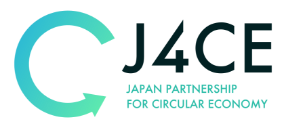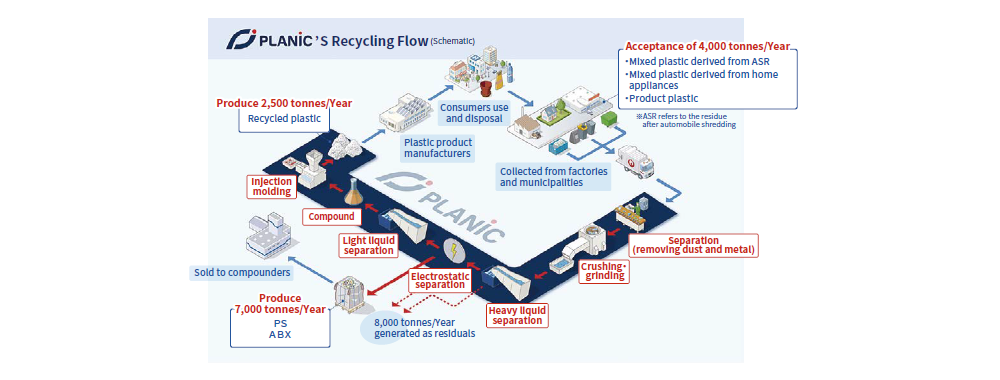
Toyota Tsusho Corporation
Toyota Tsusho Corporation
's cases
Basic values and policies for initiatives towards circular economy
The Toyota Tsusho Group has positioned its corporate philosophy of living and prospering together with people, society, and the planet, and to be a value-generating corporation that contributes to the creation of prosperous societies, as its highest unchanging concept, which should be handed down through the generations. The Toyota Tsusho Group has enhanced its corporate value by engaging in environment-friendly businesses and developing human resources who are valuable to and contribute to society.
Among the four materiarity in the Three Years Management Plan(FY2021 to FY2023), the three areas of next mobility strategy, renewable energy strategy, and circulating vein business strategy are related to 3R + Renewable.
Market opportunities and our strengths in circular business
In the Next Mobility Strategy, in every stage of the automotive life cycle—namely development & production, usage & servicing and reuse & recycling—we generate unique value in three areas: next-generation cars, which entails responding to alternative materials required for weight reductions and electrification; next-generation services, such as mobility services and connected businesses; and energy management, which entails responding to fields in which there will be new demand, such as VPP*2, storage batteries, and hydrogen and fuel cells. To take one example,
In terms of our Renewable Energy Strategy, as a competitive and clean electric power company, our goal is to further expand the countries and business domains in which we operate. Our renewable energy power generation portfolio boasts a total power generation capacity (gross) of 3.4 GW worldwide, mainly for wind power, solar power, biomass, and hydropower. We will contribute to the transition to a carbon-free society by reducing CO2 emissions from automobiles / factories / plants by utilizing clean energy and innovative technologies, not limited to the power generation business.
We have developed the reuse of a wide variety of waste matter, such as iron, waste liquid, batteries, and rare metals, which are emitted during a vehicle life cycle. Our recycling rate is close to 100% for end-of-life vehicles (ELVs) owing to our group network, including overseas connections. In addition to automobiles, our portfolio also includes resource recycling businesses such as living materials and home appliances. Even in the recycling of plastics including PET (polyethylene terephthalate) bottles, we will boast a strong presence in Japan.
Setting indices/targets
Toyota Tsusho set Materiality KPIs in 2020 to provide concrete indicators of how the company’s business activities are contributing to the SDGs. Going forward, we will apply the plan–do–check–act (PDCA) cycle to solutions to social issues and undertake business with the degree of achievement of these KPIs in mind at all times.
Implementation system
In April 2019, we established the “Sustainability Promotion Office” in the Corporate Planning Department in order to strongly promote our important sustainability issues (materiality) such as the circular economy. In addition, we levarage the Sustainability Promotion Committee, which is held once a year, to discuss, decide on, and promote sustainability strategies. The content discussed by the Sustainability Promotion Committee and other measures to be taken against climate change will be reported to the Board of Directors as appropriate and will be implemented.
Reference URL
https://www.toyota-tsusho.com/english/ir/library/integrated-report/



